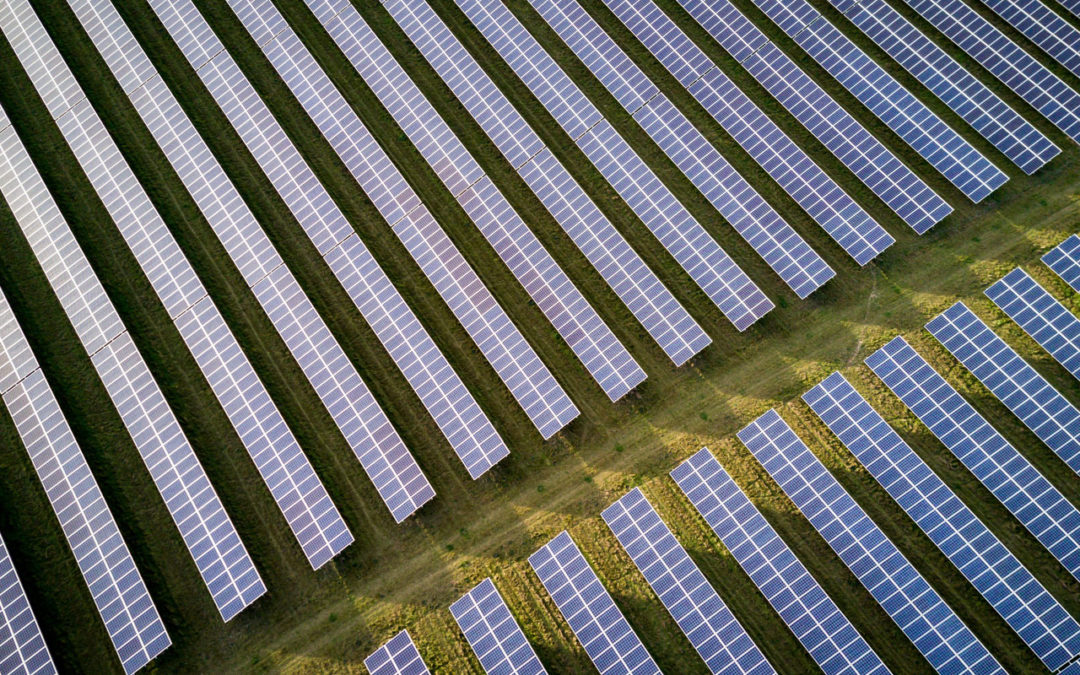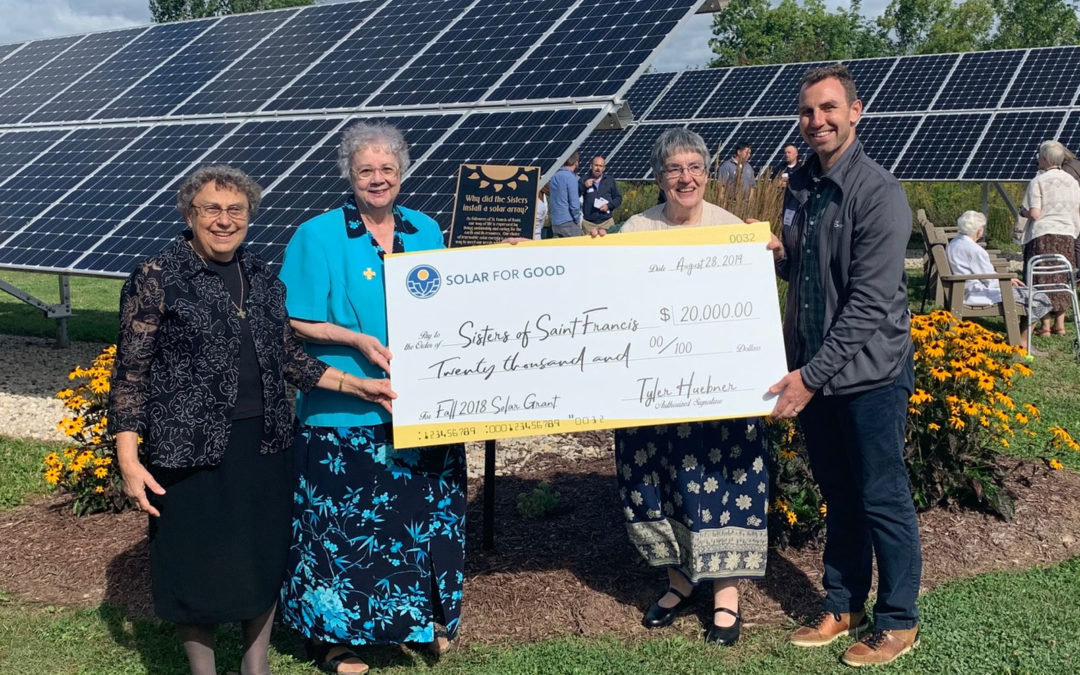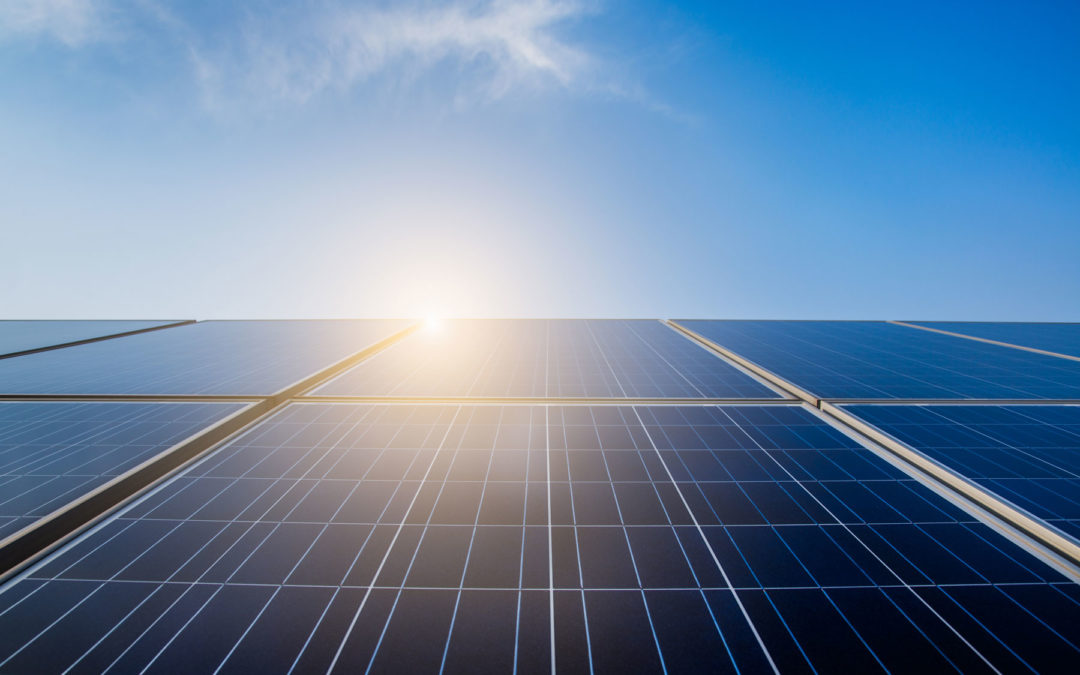
by Jane McCurry | Dec 31, 2019 | Electric Vehicles, Sustainability
In the very first edition of the RENEW Wisconsin Electric Vehicles Blog, I shared my transportation story. That was over a year ago, and now we are approaching a new decade, which will be sure to bring just as much change as the last. Here’s a quick rundown of what I see as the biggest transportation changes over the past 10 years, what’s coming next, and how I plan to clean up my own transportation use in 2020.
10 years of transportation
In 2010, 3 days after my 16th birthday I got my driver’s license, kickstarting my experience with personal transportation.
In 2015, I purchased a red (Go Badgers!) 2010 Ford Escape. I didn’t even think about buying an electric car. Sometimes, I opted to drive my car because it was warm and easy, despite having the option to reduce my emissions by walking, taking the bus, driving my moped, or biking.
Then, in July of 2018, I started working at RENEW. I was immersed in clean energy – and quickly realized that my transportation choices didn’t align with my values.
I spent a year learning as much as I could, evaluating my lifestyle, and crunching the numbers on an EV purchase. I bought a Tesla Model 3 and moved to an apartment with solar on the roof. My husband and I are an all-electric, one car household. I call a rideshare when I need it – and in Madison, I can call an all-electric rideshare with Green Cab.
This is not the transportation future I imagined when I started my transportation story in 2010. I have more options, and produce fewer emissions, than I could have imagined 10 years ago. Madison is a walkable city that has an all-electric cab company, BCycle electric bikeshares, beautiful bike paths, and an extensive bus system that is being renovated and electrified. I can (and do!) take advantage of these options to live my clean energy values more fully.
A clean energy resolution
As I reflected on my personal transportation choices this decade, I decided to make Clean Energy Resolutions for 2020:
- Buy carbon offsets for my air travel.
- Try not to rideshare alone. I will bus when possible and call a Green Cab when I need to, reducing my solo rideshare trips (it’s not really “sharing” when I’m the only one in the car that needs to go there).
How has your personal transportation evolved over the decade? What would your Clean Energy Resolutions be?
Here are a few options to dip your toe into a clean energy transition this year:
- Pledge to take the bus once a week in January
- Instead of a “swear jar” have a “lights jar” at home – anyone caught leaving a light on when they’re not in the room owes the jar $1
- Take part in National Bike to Work Day this May, bonus points if you get coworkers involved
- Look into your utility’s green power program, or other ways to offset your home’s electricity use, like solar
- Test drive an electric car (I bet you’ll like it!)
- Become a RENEW Sustaining Member
- Get a solar site assessment – at home or your work – to see if solar is right for you. See our list of trusted installers here
What will next decade hold?
This decade saw a lot of change in the way people get around. Rideshares like Uber and Lyft became common, electric scooters took over sidewalks nationwide, and electric vehicle sales tipped over 1 million in the U.S.
I expect that next decade it will be even easier to get around with enhanced micromobility options, cleaner buses with more bus routes, and more electric vehicle models than ever. These transitions are happening nationwide and Wisconsin is no exception. In addition to Madison, La Crosse, Milwaukee, and Racine all have electric buses ordered. Madison is working toward bus rapid transit, which will make commuting faster, cleaner, and more equitable for thousands of Wisconsinites. Micromobility is happening everywhere too – the founder of Bird Rides, one of the big scooter-sharing companies, grew up in Appleton! And, there are bikeshares in cities as small as Wisconsin Rapids and as large as Milwaukee. Together, these options will make it easier to get where you need to go, with fewer emissions.
For passenger vehicles, expect 200 different EV models to be available by 2025, giving us more size, shape, price, and brand options in the electric vehicle market. To add to it, I am really excited to see how the transition to autonomous vehicles will play out, especially as we transition to electric and shared mobility at the same time.
Buckle up, it’ll be a fun ride!

by Tyler Huebner | Dec 19, 2019 | Public Service Commission, Renewables, Solar, Utilities, Utility Scale
Today, the Public Service Commission of Wisconsin approved the Point Beach Solar Farm project!
Point Beach will be a 100 megawatt solar farm, and will supply electricity to WPPI Energy. WPPI is a wholesale energy provider for 41 municipal utilities in Wisconsin plus 10 more across Michigan and Iowa. The developer is NextEra Energy Resources, one of RENEW Wisconsin’s newest Business Members.
Almost three years ago, WPPI Energy made a splash by announcing the results of a request for renewable power proposals. At the time, wind energy was expected to be the winner of that competition. But this solar farm proposal was selected, foreshadowing how cost-effective solar power was becoming in Wisconsin.
Since then, other major power suppliers have followed WPPI Energy’s lead. In April 2019, the PSC approved the Badger Hollow and Two Creeks Solar Farms. Along with the 49.9 megawatt Richland County Solar Farms which was approved at the County level, these projects marked the first utility-scale solar approvals in Wisconsin.
This Point Beach Solar Farm will be placed on ground right around the existing Point Beach Nuclear Energy plant. It will also be located next to the Two Creeks Solar Farm now in construction, with the two projects combining to provide 249 megawatts of solar capacity in Manitowoc County.
With today’s PSC approval in hand, construction will begin next year and it should come online in 2021. It is expected to provide enough energy to serve more than 23,000 people.
Congratulations to NextEra Energy Resources and WPPI Energy on this project approval!

by Sam Dunaiski | Dec 16, 2019 | Community, Local Initiatives, Programs, RENEW Wisconsin, Solar, Solar for Good
RENEW Wisconsin’s Solar for Good program will issue nearly $140,000 worth of solar panels to Wisconsin nonprofits as part of their fall 2019 funding cycle. These grants will go to 13 organizations across the state that together will install nearly 600 kilowatts of clean, renewable electricity. When completed, these solar projects will lead to over $1.2 million of solar investment in Wisconsin.
The following organizations have been offered Solar for Good grants to install new solar electric systems:
CAP Services, poverty alleviation, Stevens Point
Camp Amnicon, outdoor retreat and spiritual worship, South Range
Menīkānaehkem, Native American educational organization, Gresham
Habitat for Humanity – La Crosse Area, affordable housing provider, La Crosse
Jackson County Animal Shelter, safe haven for stray animals, Black River Falls
Heartland Housing, affordable housing provider, Madison
First Unitarian Society of Milwaukee, house of worship, Milwaukee
Boys & Girls Club of Greater La Crosse, youth education, La Crosse
Bethel Lutheran Church, house of worship, Madison
Movin’ Out, alternative housing provider, Madison
Zwingli United Church of Christ, house of worship, Verona
Kathy’s House, alternative housing provider, Wauwatosa
One organization has asked to remain anonymous at this time.
This round of Solar for Good funding features a diverse group of awardees from across Wisconsin. The Boys and Girls Club of Greater La Crosse will use their solar installation to help educate members on renewable electricity and energy efficiency for their recently-renovated facility. Over 200 solar panels will be installed at Kathy’s House, a hospital guest-house in Wauwatosa. And the Indigenous-led organization Menīkānaehkem, will install solar to power several tiny homes being constructed on the Menominee Indian Reservation to house the community’s homeless population.
“We decided to go solar to reduce our energy bills and to focus more of our resources on programming,” said Guy Reiter of Menīkānaehkem. “We plan to use the array as a training center for community members interested in pursuing a career in solar. Thanks to the Solar for Good grant, we are moving closer to our goal of making the Menominee community energy-sovereign as a way to create jobs, restore hope, reduce carbon pollution, and mitigate climate change.”
This marks Solar for Good’s 5th funding cycle and the second-largest to date. Including the fall 2019 funding cycle, the program’s impact will total 74 Wisconsin nonprofits installing 88 new solar arrays throughout the state. The program will add 3.25 megawatts of clean, renewable power to Wisconsin’s electric mix, enough to power approximately 650 homes. In total, these 88 solar arrays will spur over $7 million in investments in renewable electricity.
About Solar for Good
RENEW Wisconsin’s Solar for Good initiative fosters the expansion of solar power among mission-based nonprofits and houses of worship in Wisconsin. Through a generous partnership with Couillard Solar Foundation, RENEW Wisconsin awards solar panels to nonprofit organizations, helping them switch to clean, renewable, solar energy.

by Tyler Huebner | Dec 3, 2019 | RENEW Wisconsin
RENEW Wisconsin has partnered with Madison Community Foundation (MCF) to offer a charitable gift annuity.
What is a charitable gift annuity?
Like other annuities, a charitable gift annuity offers a regular stream of income on an initial investment until your death. However, charitable gift annuities are a form of planned giving and therefore differ from other annuities in several ways.
Here is how the charitable gift annuity works:
- You make a donation to a nonprofit organization, such as RENEW Wisconsin, and take a partial tax deduction.
- MCF, as the holder of the annuity funds, invests the funds on behalf of RENEW Wisconsin and pays you (the annuitant) a regular payment until your death. A portion of this income also may be tax exempt.
- After your death, the balance of the invested funds go to the nonprofit organization (RENEW Wisconsin, in this case).
The amount of your tax deduction depends on a number of factors, including your age at the time you establish the charitable gift annuity, the size of your donation, and whether the annuity is for a single person or a couple. You should consult with your tax advisor to determine the specific tax benefits for your situation.
Who can set up a charitable gift annuity?
The gift annuity is available for donors who are 60 and older. MCF requires an initial investment of $10,000, and offers an interest rate on the gift that ranges from 4.3% for a single 60-year-old to 9.3% for a couple who are both 95 and older. (There is no upper limit on investments.)
Whatever is left in the fund at the time of your death will be put into RENEW’s endowment fund with MCF. This fund supports Energy Analysis & Policy (EAP) graduate student interns at UW-Madison’s Nelson Institute who are working at RENEW. The endowment was created by an MCF grant and gifts from EAP alumni and RENEW members a few years ago.
As an example, a 71-year-old, single RENEW member recently established a gift annuity with MCF for RENEW. He made an initial investment of $10,526. Based on his age and the amount of his initial investment, his annuity earns an interest rate of 5.7%, or $600 a year, which is paid quarterly. He was eligible to take a tax deduction of $3,527, and $460 of the annual income is tax free.
The gift annuity is ideal for people who are older than 60, looking for a higher interest rate than offered by certificates of deposit (CDs) for their savings, and who want to support a nonprofit, even after death. The charitable gift annuity through MCF is designed to have a residual amount of at least 50% of the original gift for the charity. In 2017, the average amount left for charities from charitable gift annuities using the same rates (those recommended by the American Council on Gift Annuities) was 62% of the initial contribution.
For more information, contact Heather Allen at RENEW Wisconsin (608.255.4044 or heather@renewwisconsin.org) or David Koehler at MCF (608.232.1763 or dkoehler@madisongives.org).




